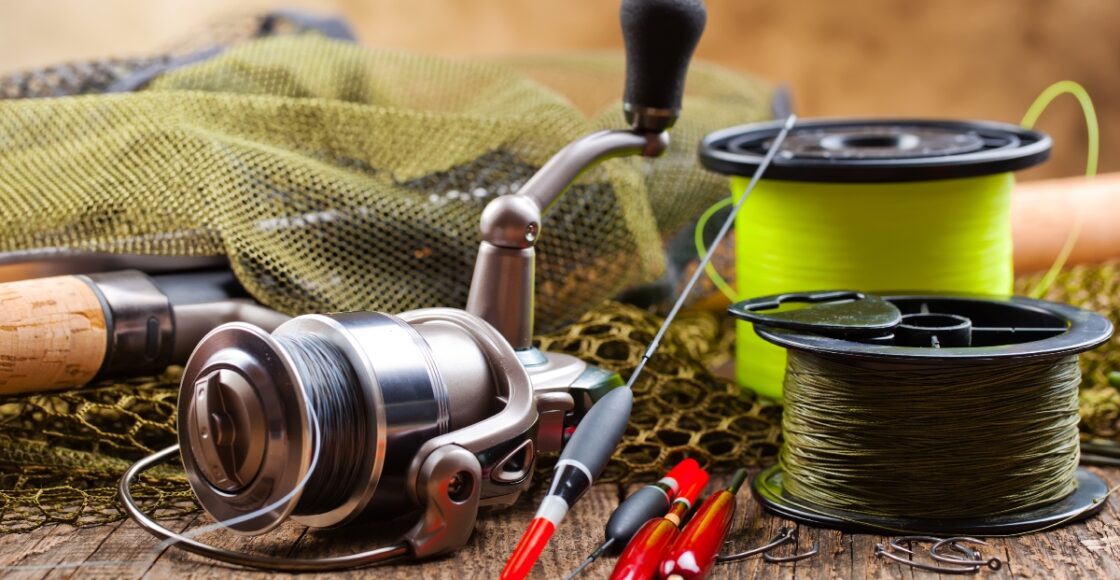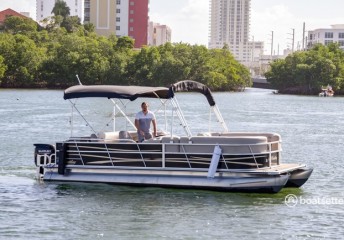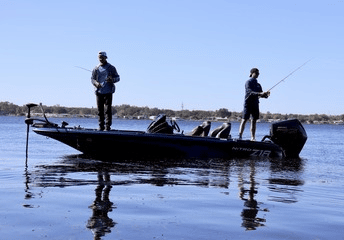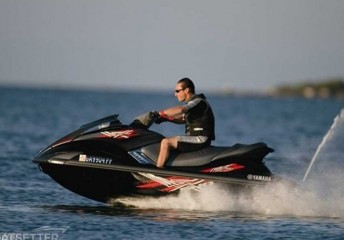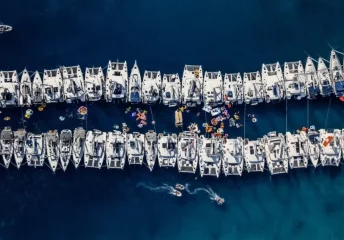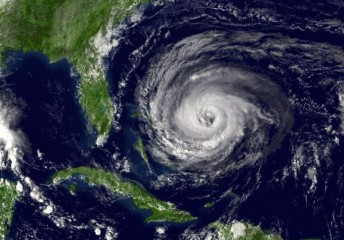Fishing Safety Guide: Gear, Regulations, and Best Practices
Last Updated on April 25, 2025 by Boatsetter Team
Whether you’re casting from shore or renting a boat for the day, a little extra caution goes a long way. Especially around sharp hooks, powerful fish, and moving boats. This guide was curated with the help of Lenny Rudow, Angler in Chief at Rudow’s FishTalk, who brings more than three decades of boating and fishing experience to the table. Together, we’re covering everything you need to know to fish safely, have fun, and protect the waters you love.
Find fishing boat rentals & guided excursions near you
Essential fishing safety gear to pack
A successful fishing trip starts with the right safety gear. Before you head out, run through this quick checklist to make sure you’re covered:
-
Life jackets for everyone onboard (U.S. Coast Guard-approved)
-
First-aid kit stocked for cuts, punctures, and minor injuries
-
Polarized sunglasses to protect your eyes from glare and flying hooks
-
Sunscreen, hat, and protective clothing for sun safety
-
Plenty of water to stay hydrated during long hours outside
-
Protective gloves for handling fish and fishing line
-
Hook removers or long-nose pliers to safely unhook catches
-
Tacklebox with a secure latch to prevent spills
-
Sharp bait knife stored in a protective sheath
Packing these essentials means you’ll be ready to fish safely — and handle anything the day throws your way.
Fishing regulations 101
Before you cast your first line, make sure you understand the local fishing laws. Fishing regulations help protect species and keep waterways healthy — and they can vary from place to place. Some parks or states restrict the types of bait you can use, enforce catch-and-release for certain species, or limit fishing seasons. Check with state wildlife agencies, park rangers, or local marinas before you head out so you can fish responsibly (and avoid fines).
Handle hooks like a pro
When it comes to fishing gear, nothing demands more respect than a hook. One wrong swing can cause serious injury. Always secure your hooks when moving around, and never leave them lying loose on the boat deck or dock. Many anglers choose single hooks over treble hooks to cut down on the number of sharp points flying around during landing. Fishing with barbless hooks — or crimping the barbs down — also makes it easier (and far less painful) to remove a hook if needed.
If you’re traveling between fishing spots, make sure any rods with rigged hooks are secured and safely stowed to prevent accidents.
Watch your gear — and each other
Fishing gear isn’t just about hooks. Gaffs, used on offshore trips to land big fish, should only be handled by experienced anglers and always capped when not in use. Strong, thin fishing lines — especially braided lines — can slice through skin under tension, so be careful not to let line wrap around your fingers. And don’t underestimate a swinging rod during a big cast: always check behind you and around you before letting one fly.
Pro tip: when fishing with beginners or kids, shorter rods help reduce the chances of accidents caused by wide casting arcs.
Teach kids fishing safety from the start
Taking kids fishing is a great way to pass down a love for the outdoors, but it comes with extra safety responsibilities. Set expectations early by showing kids how to look before casting, handle gear carefully, and respect hooks and knives. Choosing kid-friendly gear — like short rods and barbless hooks — can make a big difference. Even when fishing from a pier or shoreline, children should wear a properly fitted life jacket whenever they’re near water.And remember: kids learn by watching. Model safe habits every step of the way.
Handle fish safely
If you’re planning to release your catch, practicing good fish-handling techniques helps protect both the fish and the ecosystem. Always wet your hands before touching fish to avoid removing their protective slime layer. Use a lip gripper or pliers to remove the hook quickly and gently. Try to limit air exposure to just a few seconds, and support the fish horizontally if you lift it out of the water. A little extra care goes a long way toward healthy fisheries for future generations.
Stay smart when fishing from a boat
Fishing from a boat adds another layer of responsibility. Before you leave the dock, walk through a boat safety checklist: life jackets, radio or communication device, emergency gear, and a review of the weather forecast. Rough waters can amplify every risk — sharp tools, slippery decks, unstable footing — so if the forecast looks iffy, it’s always better to postpone. Secure all rods, knives, and gear when the boat is underway, and keep decks as clear as possible to prevent trips and falls.
Leave no trace
Great anglers take care of the environment — for the fish, the water, and the people who will visit after you. Always pack out all trash, including old fishing lines, hooks, bait containers, and wrappers. Fishing line left behind can entangle birds, turtles, and marine animals. Avoid disturbing habitats like seagrass beds or bird nesting areas, and steer clear of wildlife when boating or wading. Leave the shoreline cleaner than you found it — and set an example for the next generation of anglers.
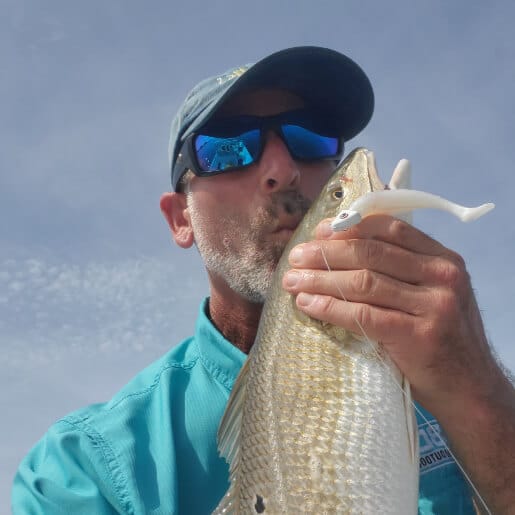
With over three decades of experience in marine journalism, Lenny Rudow has contributed to dozens of boating and fishing publications and websites ranging from BoatU.S. Magazine to BDOutdoors.com. Rudow is currently the Angler in Chief at Rudow’s FishTalk, he is a past president of Boating Writers International (BWI), a graduate of the Westlawn School of Yacht Design, and has won numerous BWI and OWAA writing awards.
